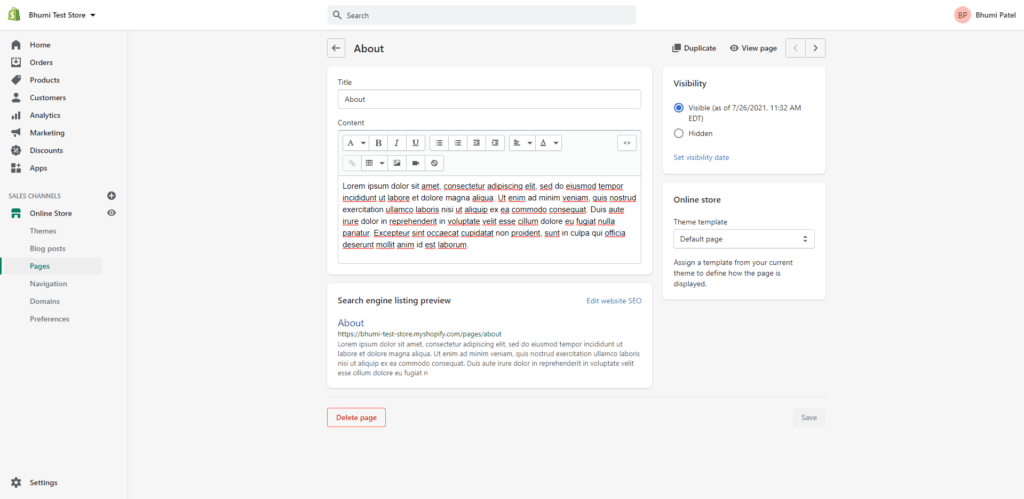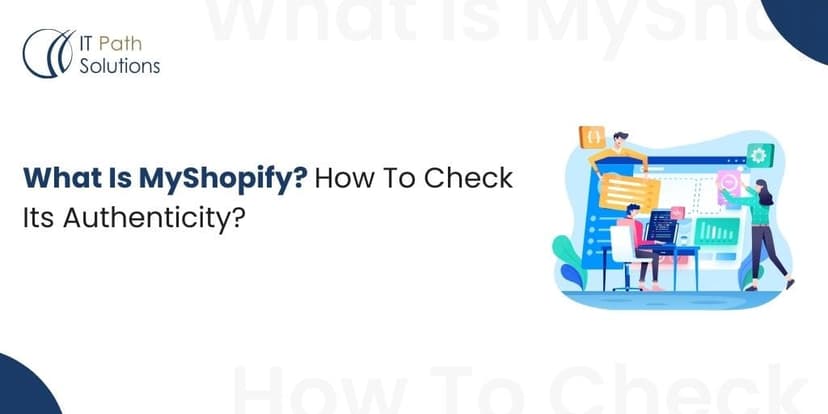WooCommerce vs. Shopify: A Developer’s Perspective
Keyur Patel
September 12, 2025
13 min
WooCommerce vs Shopify is an eternal dilemma for eCommerce web development. Shopify powers over 800,000 online stores, while WooCommerce claims it’s the web’s most popular eCommerce platform.
Shopify is effective, dependable, and simple to utilize, providing exquisite pre-built themes & layouts and brilliant & simple backend. Although with Shopify, you will have to pay transaction charges and monthly subscription fees to use the platform.
WooCommerce is the eCommerce plugin that turns any WordPress site into a powerful online store. It’s an open-source platform, and therefore free to install, making it ideal for cost-conscious users, but you’ll need to pay for things like hosting and security and development, however.
With WooCommerce, you can create a truly bespoke online store provided you have a web development team.
This article will tell you which of these platforms will best suit your business. We’ve worked extensively on both platforms, so we know all the ins and outs, and we’ve pitched WooCommerce and Shopify against each other in categories as below:
- Ease of use
- Building Time
- Design & Themes
- Sales features
- Shipping
- Plugins & Features
- Marketing Tools
- SEO
- Security
- Customer support
- Pricing
1. Ease of Use
As per popular perceptions, WooCommerce encompasses a larger learning bend than Shopify, and from our testing, Shopify is certainly simpler to grasp for a ‘regular’ user.
And don’t take our word for it. We got regular non technical individuals to use Shopify, and here are a few of their thoughts:
“Once you end up using Shopify, it is moderately simple to revise any of the components on the page.”
“If you’re somebody is looking to offer a tall volume of items and are not opposed to subscription plans – Shopify would be a great option.”
Shopify provides nearly all the major basics of an eCommerce store. Sales, secure checkout, SSL certification, backend for inventory management, all are covered.
To top that, you don’t have to worry about uptime & security. Shopify takes care of that.

Shopify is exceptionally simple to utilize and is built to assist the non-technical business owner
To differentiate, with WooCommerce, you would like to do a little more legwork, like sourcing your claim web facilitating and security – but that’s truly simple to do. Here are some major WooCommerce advantages.
- WooCommerce auto-install
- Free domain name and SSL certificate
- Storefront subject pre-installed
- 24/7 support from in-house WordPress experts
Shopify vs WooCommerce – Ease of Utilize: The Decision
Shopify is the winner. WooCommerce is a far more technically challenging platform that will require a certain level of knowledge to use, or a willingness to spend some time learning. In contrast, Shopify is accessible, and you don’t need to know how to code to get the most out of it.
2. Build Time
You will have to make a tradeoff between time and features to decide between both the platforms.
With Shopify, you can get your store online faster than WooCommerce.
If you’re beginning from scratch or have limited technical abilities, Shopify is the best alternative. Getting your store ‘live’ is faster and simpler. You’ve can quickly set up your store without much coding, and can give it a look and feel by choosing and editing themes. Unlike setting up a store with WordPress, the method isn’t manual, whereas Shopify is largely a GUI based interface even in the backend.
WooCommerce is more suited to clients that aren’t looking for multiple customizations. You have a very free hand on WooCommerce when it comes to designing your store than on Shopify.
One convenient benefit that can save you time when setting up a store with WooCommerce is good hosting. Some hosts provide WooCommerce plans incorporating facilitating, one-click WordPress establishment, and round-the-clock support for a quick setup.
WooCommerce’s setup wizard covers the nuts and bolts, but doesn’t reply to more complicated questions. It expects a better level of tech know-how from clients.
For time to deploy, Shopify again comes out ahead.
Shopify vs WooCommerce – Time to Build: The Decision
Another win for Shopify. Its key highlights are in-built features, and it’s simple to utilize. All-in-all, the set-up time with Shopify could be a bit speedier than WooCommerce in the event that you’re building an eCommerce store from scratch.
3. Design and Themes
Shopify has nearly 70 free themes. All of them contain the most important functionalities and are optimized to sell. Many private developers have provided their own themes for free or for a fee.
You will obviously have to pay more for premium themes but if they convert well then that would be money well spent.
WooCommerce’s Storefront, is responsive and comes with a clean and new layout.
How great your site looks on WooCommerce depends on the hours you’re willing to put in, as well as your specialized expertise level.
Depending on the skills of your eCommerce developer and the time and efforts put in, WooCommerce theoretically poses no limit to the design and customization options for your store.
While the breadth of WooCommerce is phenomenal, Shopify’s advertising is more curated. The Shopify creators have taken the time to choose the themes that are optimized for sales from the get go while offering the most possible features.
WooCommerce vs Shopify – Design and Themes: Decision
Shopify almost about wins this. Its layouts are sleeker than those on WooCommerce, and you’ll utilize code to customize your Shopify themes in case you want. WooCommerce offers boundless customization, but its themes need to be refined before being deployed.
4. Sales Features
Both platforms give you enough sales features to launch your online store and start selling. Where WooCommerce and Shopify contrast is within the highlights which come included as standard and the additional features you may need to develop.
Abandoned Cart Recovery
With Shopify you don’t have to setup an abandoned cart email it provides this feature automatically. But in WooCommerce you will have to setup this important selling process separately.
Multichannel Selling
Both platforms empower you to offer on Amazon, eBay, Instagram, and Facebook. The contrast is that with WooCommerce, you’ll have to pay $79 to introduce all of them separately from Facebook, which is free to introduce. With Shopify, you can utilize an omni channel marketing strategy with easy integration.
5. Shipping
Shopify has many shipping tools inbuilt which WooCommerce doesn’t. Here are some other major Shopify features.
- Abandoned cart recovery
- Discount codes
- Unlimited products
- Website and blog
- Over 100 payment options
Key WooCommerce features include:
- Built-in blogging
- “Unrestricted customization” – you’ll alter anything from the homepage format to the ‘Buy’ button.
- Ability to insert items and checkout onto a more extensive run of store pages
- One-click discount for customers While both stages meet the offering needs of shippers, Shopify’s highlights are in-built. They’re prepared to utilize from the minute you sign up.
Shopify vs WooCommerce – Sales Features: The Decision
Shopify comes out ahead due to abandoned cart checkout emails and many built in features for marketing and shipping. For WooCommerce, Custom development is required.
6. Plugins and Integrations
As an open-source platform, WooCommerce depends intensely on plugins. There are over 50,000 to select from, permitting you to construct a bespoke site without numerous limitations.
Shopify has over 1,200 free and paid apps that are all solid. In any case, on the off chance that you’re uncertain on which app to introduce, continuously check the star rating or client reviews.
WooCommerce vs Shopify – Plugins and Integrations: Decision
WooCommerce beats Shopify for this consideration WooCommerce is an open-source technology hence it has a larger share of plugins to offer.
7. Marketing Tools
Since eCommerce success largely depends on online marketing, marketing tool integration is of paramount importance.
Email Marketing
With Shopify, you’ll be able run various e-mail campaigns utilizing apps such as Seguno and Consistent Contact. WooCommerce essentially depends on plugins for its mail campaigns, advertising integration with MailChimp for personalized email campaigns.
Social Media Integrations
Shopify bolsters multichannel offering, empowering you to coordinate your store with Facebook, Amazon, eBay, and Pinterest, as well as promote on them. This allows you to go for an omni channel strategy to promote your products online. With WooCommerce you will have to depend on plugins for your marketing promotions.
WooCommerce vs Shopify – Marketing Features: Verdict
Shopify offers easier integrations and hence comes out ahead. With WooCommerce you will rely on plugins to accomplish the same tasks.
Payment Options and Transaction Fees
Both WooCommerce and Shopify offer you a choice of over 100 payment gateways. These are either in-built or included through integrations. The most common ones are:
- Stripe
- PayPal
- Credit and debit cards
- Apple Pay
- Square
Shopify, charges 2% per transaction for third party payments.You can get lower transaction fees on premium plans or use Shopify payments if its applicable.
One enormous furthermore of WooCommerce is that, unlike Shopify, it doesn’t charge its claim exchange expenses after you utilize a third party installment portal (i.e. not WooCommerce Payments).
This is one criteria where WooCommerce comes out ahead. It doesn’t charge processing fees.
Shopify vs WooCommerce – Payment Options and Fees: The Decision
WooCommerce wins this one on the premise that it doesn’t charge exchange expenses. Unless you utilize Shopify Installments, Shopify will take a transaction fee. For large volume, WooCommerce could save you a lot of money, nearly recouping the costs of development and then some.
SEO
When it comes to SEO, WooCommerce vs Shopify may be a close one to call.
WooCommerce is built utilizing code optimized for SEO, and it coordinates with WordPress together with its amazing collection of SEO plugins. Custom URLS, good page structure and design and meta are all available in WooCommerce.
Any other feature can be added with the help of plugins.
We just like the free SEO Booster, which checks your store and offers fixes for issues that may be hurting performance. Shopify also makes it simple to include fundamental SEO data to your store. You’ll be able add descriptions and titles for your pictures, items, and pages. Here’s an case of a store we made on Shopify. You’ll be able see where we’ve entered the content (underneath) and how it shows up in a ‘fake’ Google result.

WooCommerce vs Shopify – SEO: Decision
A win for WooCommerce. With WooCommerce, you’ve got to a wide extent of fabulous SEO plugins, furthermore it offers supportive SEO guides and prompts. Shopify doesn’t have too many SEO apps to offer, which may be prohibitive for the long run.
Security
With Shopify, security is taken care of for you. You don’t have to worry about downtime or hackers as Shopify is always on the case protecting your site.
WooCommerce, on the other hand, works with WordPress and is hence self-hosted. You will need to hire a developer for security and maintenance.
SSL Certificate
SSL stands for Secure Attachments Layer. An SSL certificate is dependable for shielding your site so individual data can’t be altered with by cyber criminals.
Shopify comes with built-in SSL. This could be seen by the small latch symbol that appears following to your URL. The most benefits of having an SSL certificate are:
- Security when handling customers’ installments and individual information
- Helps your store’s SEO, as Google looks favorably on locales with SSL
- Lets clients know your location is secure to browse, making deals more likely
For WooCommerce you will need to get a SSL certificate separately.
PCI-DSS Compliance
Shopify is completely PCI-DSS compliant. You don’t ought to stress or set up a thing, and can start processing credit and charge card payments from day one.
WooCommerce isn’t consequently PCI-DSS compliant. You’ll make WooCommerce compliant, but it will be a manual process.
WooCommerce vs Shopify – Security: The Decision
It’s a straightforward win for Shopify here. It’s a facilitated stage, meaning security is taken care of for you. Shopify comes with an SSL certificate, and is PCI-DSS compliant. With WooCommerce, be that as it may, you’ll got to source SSL and set up PCI-DSS compliance yourself.
Customer Support
Shopify gives 24/7 back over the phone, live chat, and mail. Toss in a library of supportive guides, a community gathering, and a setup wizard, and Shopify can be decent. In reality, Shopify scored a 3.8/5 in our client feedback.

Shopify has fabulous back in put to assist you out, whether it’s guides, phone, gatherings, or recordings
With WooCommerce, you can raise support tickets but it will not be as straight forward as Shopify.

Shopify vs WooCommerce – Customer Support: The Decision
Shopify is generally more responsive as you are their paying customer.
Pricing
How much do WooCommerce and Shopify cost?
Check out the table underneath for a fast overview.
| Shopify | WooCommerce (With good hosting) |
| Shopify Basic ($29/month) | Starter ($13.99/month) |
| Shopify ($79/month) | Plus ($17.99/month) |
| Advanced Shopify ($299/month) | Pro ($31.99/month) |
We are not comparing enterprise level and custom plans as those can vary based on the offer.
Shopify vs WooCommerce – Pricing: Decision
WooCommerce is cost effective overall though it doesn’t require initial setup in the form of development. Plus WooCommerce doesn’t have transaction fees.
WooCommerce vs Shopify: Pros and Cons
| Shopify Pros | Shopify Cons |
| Hosted software – Shopify includes hosting and security, plus you don’t need to use any code to build a brilliant online store | Transaction fees – Shopify is the only platform to enforce its own transaction fee, unless you use its own gateway, Shopify Payments |
| 24/7 support – have your issues resolved around the clock to keep your customers and sales figures happy | Costly apps – it’s easy to rack up an expensive yearly bill for your apps |
| Multichannel integration – sell on other channels like Amazon, Facebook, eBay and Pinterest as a built-in feature |
| WooCommerce Pros | WooCommerce Cons |
| Limitless customization – as an open-source platform, you can use code to customize your store to your heart’s content | Not beginner-friendly – unless you have some coding knowledge, you’ll struggle to build the online store you want on WooCommerce, unlike on Shopify |
| Scalable – WooCommerce and its fantastic flexibility allow you to achieve your eCommerce dreams | Excellent value for money – it’s free to install, plus the extensions are mostly |
| Reasonably priced, helping you add greater functionality to your store at a low cost |
Shopify vs WooCommerce: Conclusion
Here is our verdict. Full and final:
You can utilize Shopify if:
- You need 24/7 bolster, and things like security taken care of for you
- You require web site up live in a brief space of time with constrained specialized knowhow
- You need smooth formats that are simple to customize
You can utilize WooCommerce if:
- You need to set up a enthusiasm venture that requires parcels of personalization
- You need to construct a large-scale online store offering in various regions
- You are actually competent and need more prominent control over your site’s plan and hosting
In any case, if you are looking for Shopify or WooCommerce development do drop us a line below. Our consultants can help you choose and decide on the best platform and plan for your eCommerce store.

Keyur Patel
Co-Founder
Keyur Patel is the director at IT Path Solutions, where he helps businesses develop scalable applications. With his extensive experience and visionary approach, he leads the team to create futuristic solutions. Keyur Patel has exceptional leadership skills and technical expertise in Node.js, .Net, React.js, AI/ML, and PHP frameworks. His dedication to driving digital transformation makes him an invaluable asset to the company.
Related Blog Posts

Top Shopify Developer Skills You Must Consider While Hiring for Your Project
The e-commerce landscape is booming, and Shopify has emerged as one of the most powerful platforms for building online stores. However, the success of your Shopify store hinges on hiring the right talent. Whether you’re launching a new store or optimizing an existing one, understanding what is a Shopify developer and the critical Shopify developer… Top Shopify Developer Skills You Must Consider While Hiring for Your Project

B2B eCommerce Development Strategies To Drive Sales Growth In 2025
Did you know global B2B eCommerce sales are expected to reach $20.9 trillion by the end of 2025? Yet, many businesses still struggle with outdated platforms, clunky interfaces, and disconnected systems. If your current setup is holding back your sales team, ask yourself: How much growth are you leaving on the table? Here’s the truth:… B2B eCommerce Development Strategies To Drive Sales Growth In 2025

Is MyShopify Legit? Pros, Cons & How to Spot Scams (Full Guide)
Shopify is a widely recognized eCommerce platform that is popular among new entrepreneurs and startups for building online stores. However, with nearly 5.1 million Shopify websites available under the same subdomain MyShopify.com, questions around authenticity and trustworthiness frequently arise. Let’s first clear the air by answering the most awaited question: Is MyShopify legit? Well, Yes,… Is MyShopify Legit? Pros, Cons & How to Spot Scams (Full Guide)
